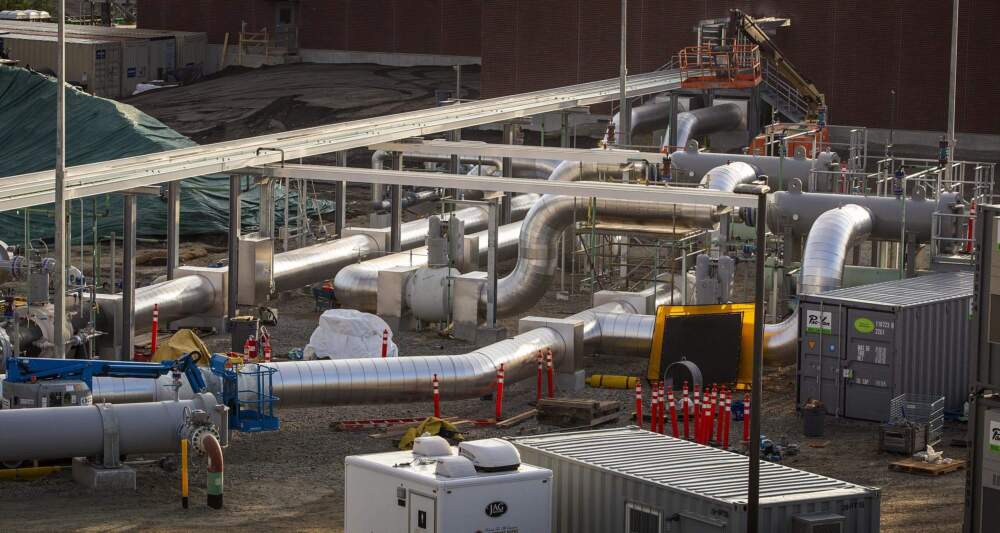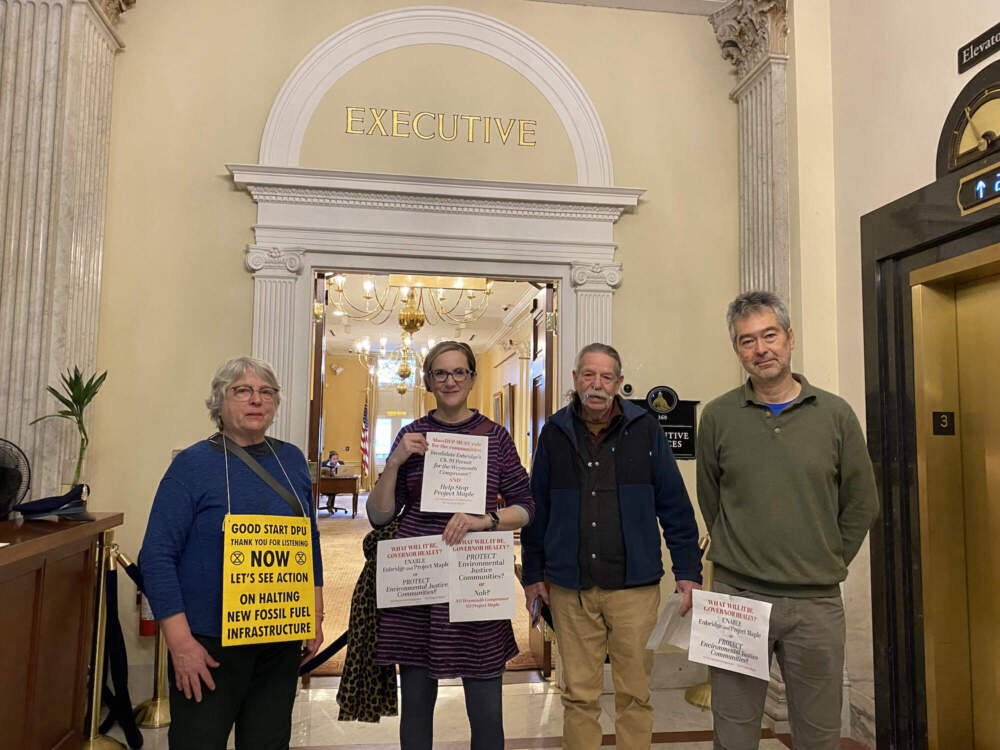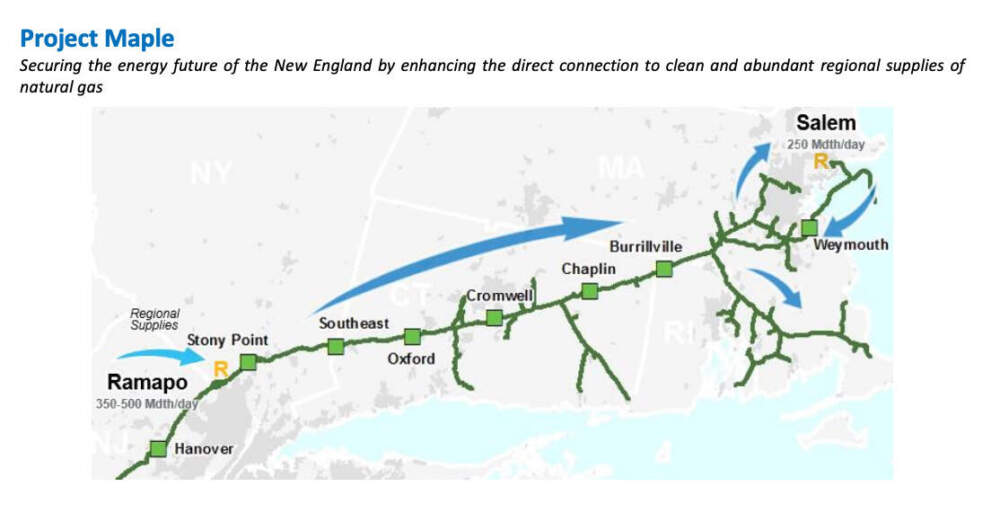Advertisement
Environmentalists demand Northeast governors oppose gas pipeline expansion project

A multistate coalition of over 90 environmental organizations is demanding that the governors of Massachusetts, Connecticut, Rhode Island and New York publicly oppose a proposal to expand a major natural gas pipeline in the Northeast.
Known as “Project Maple,” the expansion project would substantially increase the capacity of the Algonquin Gas Transmission line, which carries fracked natural gas from northern New Jersey through New York, Connecticut, Rhode Island and into Massachusetts where it connects to another pipeline at the Weymouth Natural Gas Compressor Station.
The company behind the project, Enbridge, says piping more natural gas into the region will help stabilize energy prices, make the electric grid more reliable and help states meet their climate goals by burning less oil on cold days. But the coalition opposing the project — which includes groups like the Sierra Club, the Acadia Center, the Conservation Law Foundation and 350 Mass — disagrees.
“More pipelines will only exacerbate our existing fracked-gas dependence, raise our energy bills, and harm our communities,” the coalition members wrote in letters they recently delivered to the four governors. “In order to mitigate the climate crisis, and to protect our communities, the amount of fossil fuels burned must be decreased immediately and [states must implement] policies that ensure the just and rapid transition to a cleaner, renewable energy-powered regenerative economy.”
Andrea Honore, a resident of Weymouth, was one of the environmental activists who hand-delivered the letter to Gov. Maura Healey’s office this week.
“Maura Healey had a record as [Attorney General] of standing up against gas and oil companies,” she said. “Now as governor, we would like to know how she plans on addressing Project Maple.”
As recently as last fall, Gov. Healey has said, “No new fossil fuel power plants. No new fossil fuel transmission lines,” but Honore says language like that is cold comfort. Project Maple, she pointed out, would not technically be a “new” fossil fuel pipeline.
When pressed on where Healey's administration stands on Project Maple, Maria Hardiman, a spokeswoman for Massachusetts Executive Office of Energy and Environmental Affairs, wrote in an email that the administration is “concerned that a large gas pipeline expansion will not address reliability issues in a way that is consistent with our net-zero emissions limits.”
And while this is not an explicit promise to oppose Project Maple, Hardiman noted that the project is still in the planning phases and may not turn out to be viable. She also pointed out that late last year, the state’s Department of Public Utilities issued a landmark ruling intended to reduce the state’s reliance on natural gas and encourage the shift to cleaner sources of energy.
Advertisement

According to Nick Katkevich of the Sierra Club, none of the governors who have received the coalition’s letter have taken a forceful stance on the project. But he’s not disheartened by this.
“I don't think we've heard anything affirming so far,” he said, “but this is going to be a long struggle.”
Project Maple is in the very early stages of development. Enbridge has not released a final design or timeline, although preliminary documents suggest the project would come into service in late 2029 and entail replacing existing underground pipes with larger ones, running secondary pipe lines alongside current ones and expanding some compressor stations along the route.
The company first announced the project in September when it launched an “open season.” This is essentially an auction process where the company says it wants to build a pipeline and asks which customers want gas. The goal is to gauge interest from gas utilities and power plant owners — a necessary requirement for federal approval.
The open season wrapped up in November, and Enbridge spokesman Max Bergeron said the company is still working “to finalize the project scope and schedule for Project Maple based on our customers’ specific needs.”
Bergeron did not answer questions about whether the auction was successful and who participated, but William Hinkle, a spokesman for Eversource, one of Massachusetts largest gas utilities, said the company did offer a bid.
“We participated as we regularly do in open seasons on behalf of our customers to give any potential reliability or affordability solution full consideration,” he wrote in an email. “However, this does not represent any sort of commitment.”
National Grid, the state’s other large utility, declined to say whether it participated.

Looking ahead, the next big milestone for the project will be when Enbridge begins the official permitting process with the Federal Energy Regulatory Commission. The company's filing will provide more details about the project, as well as trigger an environmental review and a public comment period.
Katkevich of the Sierra Club said he’s hopes that governors like Maura Healey will take a stronger stance on the project at this point and get involved in the effort to stop it. And in the meantime, his group and others in the multistate coalition plan to continue organizing and raising awareness about the project.
“The different community groups across the region are committed to fighting this until we stop Project Maple — and we’re going to stop Project Maple,” he said.
